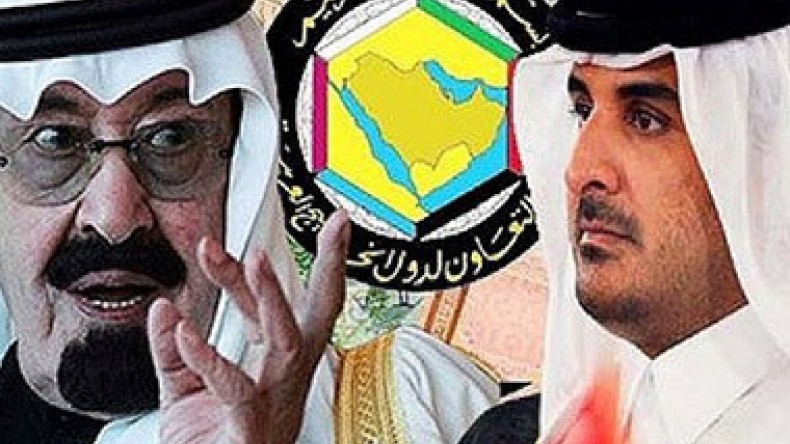
Has Qatar changed its stance?
Below is Iranian Diplomacy’s interview with Mohammad Shariati Dehaghan, Iran’s former ambassador and representative to the Organization of Islamic Cooperation.
- Doha has asked seven leaders of the Muslim Brotherhood to leave Qatar within a week. Is there a change in Qatar’s approach towards the Muslim Brotherhood, or is this measure taken in line with this country’s interaction with Saudi Arabia and preventing a challenge in the Persian Gulf Cooperation Council?
- The issue of Qatar has become complicated. On one hand, Qatar itself and, on the other hand, Algeria, which is affiliated with Qatar but claims to be independent, have not yet changed their positions with regard to Egypt and the regional issues. Meanwhile, a meeting was held between Saud-al-Faisal and Qatari security officials within the framework of regional cooperation and mediation. In that meeting the issue of Qatar’s presence in the Persian Gulf Cooperation Council was discussed. There were predictions after this meeting that Qatar had given certain concessions to Saudi Arabia. It is assumed that Qatar’s demand of seven leaders of the Muslim Brotherhood to leave this country was along this line. Furthermore, the pressures exerted by Egypt resulting from its relations with Saudi Arabia have placed Qatar on this path. But these have not caused Qatari media, including Al-Jazeera, to change their policies with regard to Egypt and the region. Qatari media still consider al-Sisi’s presidency a coup d’état. This network has broadcasted thorough reports about the failure of al-Sisi’s measures and also the problems related to this country’s 238 billion dollar deficit and predicted that the revolution of the hungry people will soon take place in Egypt. Therefore, Qatar has not yet changed its positions with regard to the issues of difference, unless it gradually balances them after the ultimatum which has been given to these seven leaders of the Muslim Brotherhood.
- Will Saudi Arabia be satisfied with the exit of these seven leaders of the Muslim Brotherhood from Qatar? What would Saudi Arabia do if these leaders leave but Qatar’s support continues?
- Certainly, an agreement has been made between Qatar and Saudi Arabia, because usually Qatar does not agree with these matters as it was the case with regard to Hamas. The central political office of Hamas is in Qatar and despite numerous pressures that were exerted on this country, it did not agree to force them to leave. Certain agreements have been made which will later be disclosed.
- Some of these leaders who have been asked to leave by Qatar have stated that they understand this country’s demand. Why have they accepted to leave Qatar?
- The issue that is still being discussed is whether the radical groups in the region are related to the Muslim Brotherhood or not and what the roots of the Takfiris are. Certainly, the Muslim Brotherhood has special respect for Sayyid Qutb and its members consider themselves as his students. At the same time, some relate the radicals and the Takfiris to Sayyid Qutb, thus, this issue is discussed. Furthermore, considering the pressures exerted by Egypt and other countries against the Muslim Brotherhood, there is the possibility that the Muslim Brotherhood youth will become interested in armed struggle. If the Muslim Brotherhood succeeds in maintaining its moderate approach and refrains from armed struggle despite numerous media, judicial and security pressures which exist in Egypt, they could be more hopeful of other countries’ support. Even Europe, particularly London, which is the big center of Islamic inclinations and lobbies, is reviewing its positions with regard to the Muslim Brotherhood. They are concerned whether the charities which belong to the Muslim Brotherhood in Europe pursue humanitarian or arms-related matters.
- Right now, Saudi Arabia is faced with a new challenge called ISIS and although it was one of the first supporters of this group, it is now one of the most concerned countries with regard to the acts of this terrorist group. Could the ISIS crisis lead to the balancing of Saudi Arabia’s position with regard to the Muslim Brotherhood?
- This issue depends on the Muslim Brotherhood and how inclined this group would be towards radicalism and armed struggle under regional pressures. If this group pursues such a path, it will be faced with more problems in the region and even in Europe. But the Muslim Brotherhood could continue its movements based on political issues. Certainly, peaceful inclinations and being distant from a radical atmosphere could stabilize their situation. Today, Qatar is the only country, besides Saudi Arabia, which has Wahhabism as its official religion and if the Muslim Brotherhood does not separate itself from Salafism and radicalism, it will be confronted with problems. In Egypt, some of the Salafi groups which are close to the Muslim Brotherhood have demanded not to join the anti-ISIS coalition. Therefore, all these matters are related to the Muslim Brotherhood. Saudi Arabia had never had good relations with the Muslim Brotherhood. The government of the United Arab Emirates also has an old enmity with the Muslim Brotherhood and has blocked any help from being given to this organization.
Newsfeed
Videos






























